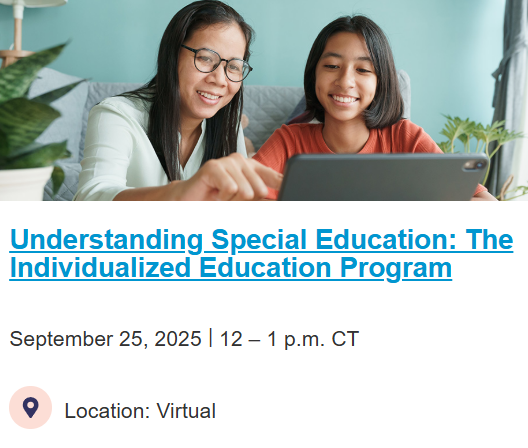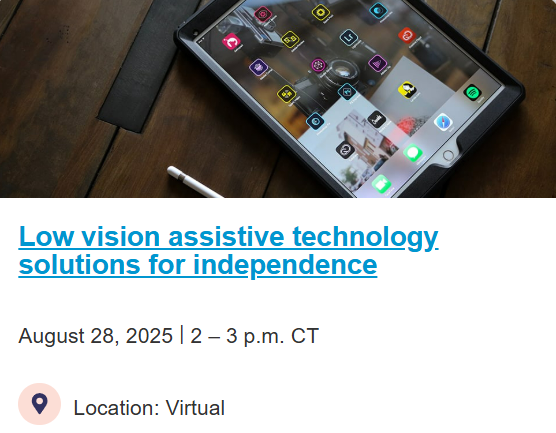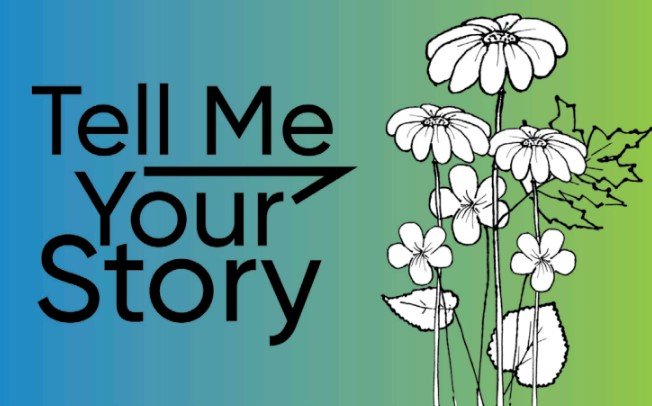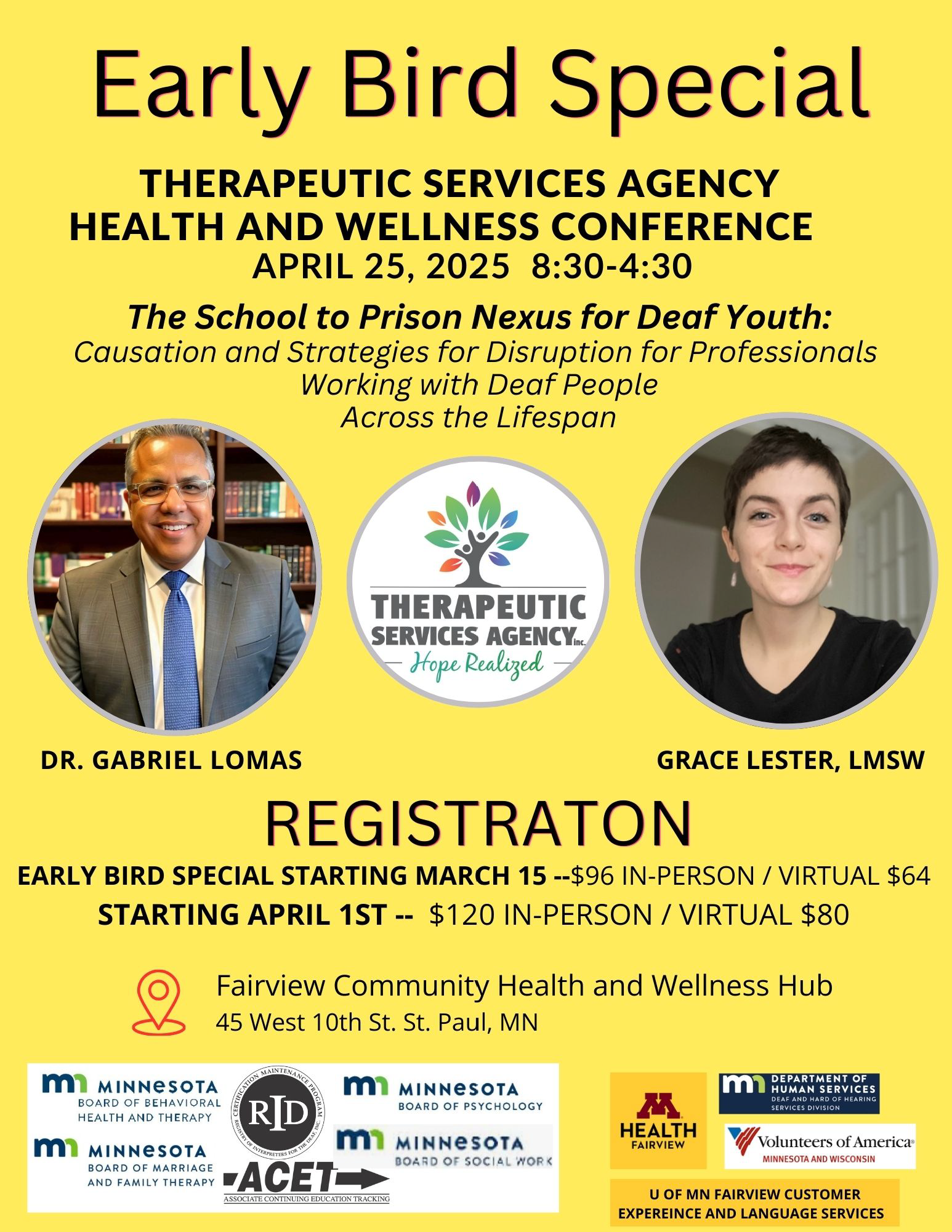
Upcoming Trainings

Childcare Champions Training Day
Join us Saturday, January 31st, 2026 8:00am-3:30pm-doors open at 7:30am.
North Branch Area High School
Calling all childcare providers! Join for a full day event dedicated to advancing your skills, connecting with peers, and having fun!!
Why Attend?
Professional Development: Earn six hours of
Develop-approved training by attending three
engaging sessions, with nine topics to choose from.
Networking & Resources: Connect with other
providers and explore vendor booths and on-site
resources designed to support you.
Perks & Prizes: Enjoy tasty snacks, and a delicious
lunch. Have a professional photo taken. Plus, you’ll
have the chance to win exciting door prizes!

Suicide Screening, Assessment, and Intervention Training. (Copy)
Earn CEU credits while learning gold-standard suicide screening, assessment, and intervention protocols. This training covers the C-SSRS, SAFE-T, and Stanley-Brown Safety Planning Intervention – proven evidence-based interventions for suicide prevention. Both trainings are virtual. No cost to attend.
*Register at https://tinyurl.com/56b9evzx

Suicide Screening, Assessment, and Intervention Training.
Earn CEU credits while learning gold-standard suicide screening, assessment, and intervention protocols. This training covers the C-SSRS, SAFE-T, and Stanley-Brown Safety Planning Intervention – proven evidence-based interventions for suicide prevention. Both trainings are virtual. No cost to attend.
*Register at https://tinyurl.com/3u424233

The 40-Day Project: postpartum support in community (Copy)
The 40-Day Project is a a virtual platform and curriculum created to support parents in the early postpartum period, a critical time for family health and adjustment. During the postpartum period, many new parents experience isolation, stress, and untreated mental health challenges such as anxiety or depression, often without structured support for self-care. Drawing inspiration from the traditional 40-day postpartum practice common in Latinx and other cultures, this project provides culturally responsive resources in Somali, English, and Spanish. Through its website, parents and providers can access five modules with educational materials, birth stories, videos, and handouts on postpartum wellness, social connection, and self-care. A curriculum in Spanish and Somali has been piloted and is available to helping parents feel supported. To date, two cohorts have implemented; one in Spanish in Dodge Center, and one in Somali in Bloomington.
Learn more about this curriculum and how it is supporting mental wellbeing.

Assistive Technology for Communication
Assistive technology for communication can help individuals express their wants and needs, exchange information, interact socially, and more. This beginner-friendly webinar will demonstrate and explore a sampling of symbol-based and text-based communication tools. It will look at a range of low-to-high-tech apps and devices available in our Simon Technology Center.

Understanding Special Education: The Individualized Education Program
This workshop will review the ten parts of the Individualized Education Program (IEP) and help parents understand its goals, services, and accommodations. It will also include a brief overview of the Prior Written Notice (PWN).
If an ASL interpreter is required, please notify webinars@pacer.org at least 48 hours prior to the workshop. We will do our best to accommodate your request.

Assistive technology for math
Join this Zoom webinar to learn about assistive technology that can help build math skills for all ages, levels, and abilities. We'll review a variety of math tools that include apps, chrome extensions, manipulatives, and more.

Understanding Special Education: Evaluation and eligibility
This workshop will focus on special education evaluations and eligibility for services. Topics covered will include when and how to request a special education evaluation, planning for the evaluation, receiving the results, and what they mean for your child’s eligibility.
If an ASL interpreter is required, please notify webinars@pacer.org at least 48 hours prior to the workshop. We will do our best to accommodate your request.

Working towards positive educational outcomes: Mental health and special education
This introductory workshop will help parents and others understand the special education process, navigate Individualized Education Program (IEP) team disagreements, and give tips for how to prepare for a positive IEP team approach to support their child’s mental health needs. This workshop is funded in part by a grant from the Minnesota Department of Education.
If an ASL interpreter is required, please notify webinars@pacer.org at least 48 hours prior to the workshop. We will do our best to accommodate your request.

Understanding Special Education: Process and rights
This workshop will provide parents with an introduction to understanding the special education process and an overview of their parental rights. It will also include a discussion of the six main principles of the Individuals with Disabilities Education Act (IDEA).
If an ASL interpreter is required, please notify webinars@pacer.org at least 48 hours prior to the workshop. We will do our best to accommodate your request.

Low vision assistive technology solutions for independence.
This workshop will explore assistive technology tools that can help individuals with low vision live more independently. Participants will discover solutions for daily tasks, communication, mobility, and accessing information.

Mental Well-being and Resilience Learning Community
The Minnesota Department of Health leads a monthly learning opportunity for anyone who is interested in building resilience and promoting mental wellbeing.
Learn: About effective wellbeing strategies and practical implementation steps from communities across Minnesota.
Dream: About creating thriving communities, families and youth.
Plan: Community and state action plans. Develop opportunities to partner with people in your community who are interested mental wellbeing and resilience.
Registration: See registration links for each session below.

Executive functions tools for school and work
Executive function skills like focus, organization, and time management are essential for success in both education and the workplace. This workshop will introduce assistive technology tools—such as apps, smart devices and strategies—that can support adults in managing tasks, setting reminders, and staying on track. Whether you're a student, employee, or supporting someone who is, you'll leave with practical strategies to enhance productivity and independence.

Listening with text-to-speech: Tools to support reading access
This workshop will introduce a variety of text-to-speech tools that enable users to listen to written content. Participants will see demonstrations of reading pens, mobile apps, and computer-based tools compatible with Chrome and Microsoft platforms. These technologies can benefit individuals of all ages and abilities, particularly those with dyslexia, ADHD, low vision, slower cognitive processing, or reading comprehension challenges.

Working towards postitive outcomes: Mental health and special education
This introductory workshop will help parents and others understand the special education process, navigate Individualized Education Program (IEP) team disagreements, and give tips for how to prepare for a positive IEP team approach to support their child’s mental health needs. This workshop is funded in part by a grant from the Minnesota Department of Education.
If an ASL interpreter is required, please notify webinars@pacer.org at least 48 hours prior to the workshop. We will do our best to accommodate your request.

Tech for Teens: Ask An Astronaut
August 20, 2025: 10am - 12pm
Join this special Tech for Teens event for a live Q&A session with an astronaut from the Expedition 73 crew currently aboard the International Space Station! The event will include a straw rocket launching workshop where participants will get to design and test their own paper rockets. Then we’ll tune in to a livestream directly from the space station where one or more members of the crew will answer questions submitted by you!

Executive Function Tools to Support Independent Living
Join us to learn about tools that can help individuals function more independently at home or on the job.

Navigators & Brokers: Partners in Your Healthcare Coverage
Monthly Facebook series available in 3 languages: English, Somali & Spanish.

Supported decision-making and guardianship
This workshop will address the consideration and purpose of supported decision-making and guardianship with a focus on the details of the legal procedures.

Collaboration, Communication, and Uncovering Vulnerability
We experience conditioning from the day we are born. Each day templates, rules, behaviors and ideas, by which we are expected to act upon in a specific way, are reinforced.
Often, we lack the space to uncover our vulnerability. We may miss out on how our communities work together, connect and allow spaces to share those vulnerabilities.
During our conversations and short activities, we plan to focus on you, the participant, and help you find the elements of thoughts that color reality. Let's engage in conversation and become aware of the that power lies in wait for you to use. This self-exploration will help you work with your youth and families to get to know themselves.

Transitioning from early intervention to special education services
This workshop will explain the difference between early intervention services and preschool special education services and provide helpful tips for making this change.

Trusts and ABLE accounts
Join us for this workshop to learn more about Power of Attorney, health care directives, maintaining eligibility for government benefits, Special and Supplemental Needs Trusts, and ABLE accounts.

Navigators and County Workers: Partners In Your Health Coverage
Free Facebook presentation on finding/keeping affordable healthcare coverage.

Navigating Minnesota waiver services
This workshop will help parents and professionals understand the types of disability waivers available in Minnesota.

Getting help for children and youth with mental health needs
This workshop will explore informal and formal supports, county and state services, how to navigate medical care, and more.

Introduction to customized employment for young adults
Is customized employment an option for your young adult? Join us to hear from Margie Webb, MS, CRC, a customized employment specialist for Minnesota’s Vocational Rehabilitation Services, about flexible employment options for young adults with disabilities.

Navigating government and community disability resources
Join us to learn about statewide disability resource networks to help you solve problems, navigate the systems, and plan for the future.

Child & Adolescent Mental Health Conference
One of the largest conferences of its kind in the country – we welcome teachers, therapists, psychiatrists, counselors, social workers, infant and early childhood professionals, health care workers, parents and all others who support children prenatal to age 24.

Therapeutic Services Agency Health & Wellness Conference
TSA is excited to host its 2nd annual statewide training for the Deaf/Hard of Hearing Deafblind professional community and for those who work within the DHHDB community, or those who are interested to learn more on the culturally focused research topic of deaf children in schools and the linkage to incarceration.

Assistive Technology to Support Sensory Needs
Discover a variety of options that can support different sensory needs and learn how they can be used in everyday settings!

Creating a crisis plan for youth with mental health needs
This workshop will provide an opportunity to work through an example crisis plan and offer suggestions on how it can be used at home, in school, and with Individualized Education Programs (IEP) and 504 Plans.

